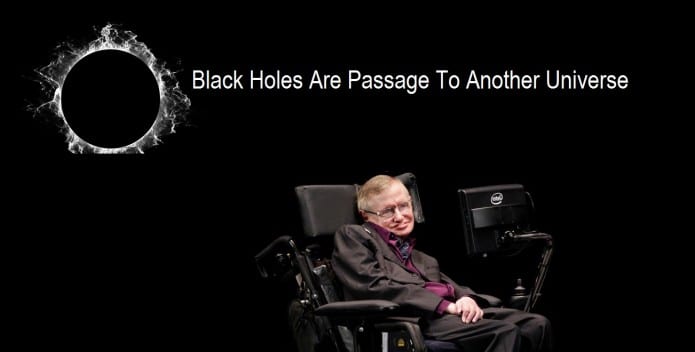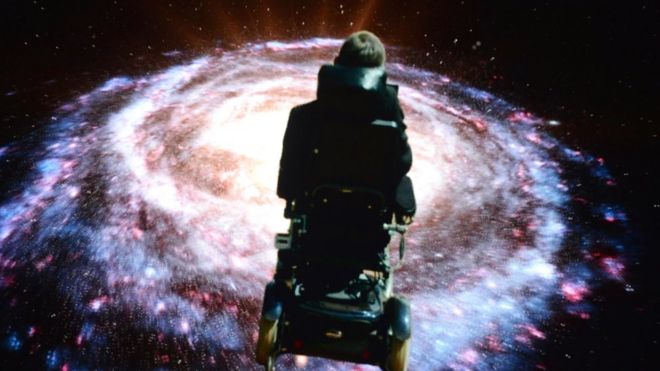Renowned scientist Stephen
Hawking passed away yesterday in his home at the age of 76. According to his
family he encountered death peacefully. He has been called one of the most
intelligent people ever born, and even bound to a wheelchair he made waves. These
are some of the last known photos of the man.
In one of Hawking’s last
public appearances with Neil DeGrasse Tyson on his show Star Talk, he said “The
boundary condition of the universe … is that it has no boundary.”
He was known for saying
things just like this. In other words he means, there is no such thing as time
before time started, because time has never ceased to exist. It’s quite a good
thing to chew on with the mind.
Stephen Hawking would
describe such things as his belief that against a nearly infinitely small
“quantum foam” of the singularity he believes took place in the early universe
before the Big Bang, time existed in a “bent” state. He believes at that
moment, time was distorted along another dimension, always inching slightly
closer to but never becoming, nothing.
So essentially, he believes
there was never a Big Bang that created what we know today out of nothing, but
it was created from something. In one of his previous
lectures, Hawking said:
“Since events before the Big
Bang have no observational consequences, one may as well cut them out of the
theory, and say that time began at the Big Bang. Events before the Big Bang, are
simply not defined, because there’s no way one could measure what happened at
them.”
So, even in his late years
he still tried to figure out what may have existed before what they believe
created the universe, the Big Bang. Along with University of California Santa
Barbara academic James Hartle, Hawking proposed that another dimension of time
itself put forth by quantum theory, called imaginary time, when combined with
space is in fact finite in a certain way but without boundary.
That’s the very type of mind
pretzel he’d give us: what is finite but without boundaries? Summarized by
News.Au:
“But Hawking’s insight has
proven right before. What we do know is that when it comes to the Big Bang —
and black holes — our understanding of physics breaks down. The only certainty
about the infinitesimally small quantum building blocks of our universe is that
they are uncertain.”
Now this might be one of the
greatest things Stephen Hawking has done. He tried to warn humanity about a
potential threat coming from artificial intelligence. Just last November
speaking at the Web Summit in Lisbon, Hawking said artificial intelligence has
the power to be the worst or best thing humanity has ever seen, and we have no
idea which one it will be.
“We cannot know if we will
be infinitely helped by AI or ignored by it and sidelined, or conceivably
destroyed by it,” he said.
Already, a strange official
narrative promoting AI is being perpetuated that needs people like Hawking to
stand against. The official narrative promoting AI looks a little something
like what was in this sentence in an article about Hawking, which said “AI
could be hugely beneficial for reducing poverty, disease and restoring the
natural environment.”
In what is probably modest
agreeability to support the objectivity of his AI criticism, Hawking said with
AI it is an impossibility to predict “what we might achieve when our own minds
are amplified by AI.” He said: “AI could be the worst invention of the history
of our civilisation, that brings dangers like powerful autonomous weapons or
new ways for the few to oppress the many.”
“AI could develop a will of
its own, a will that is in conflict with ours and which could destroy us. In
short, the rise of powerful AI will be either the best, or the worst thing ever
to happen to humanity.”
Stephen Hawking stood on a
strange leg slightly in opposition to the agenda to centralize power over
humanity using technology. He seemed to be well aware that this agenda to
centralize power over the common people with technology was taking place.
In defense of “global
government” mainstream articles about Hawking say strange things like this:
“Hawking warned scientists and global governments needed to focus on maximising
benefits for society rather than pure capability.” However, not much can be
found about Hawking talking about global government. He didn’t seem to be with
that.
“We need to employ effective
management in all areas of its development,” he said. “We stand on a threshold
of a brave new world. It is an exciting, if precarious place to be and you are
the pioneers,” he said to an audience of scientists.
The man was not a naturalist
to the point where he wanted to avoid all potentially dangerous technology, and
he said humans may need to leave planet Earth in 100 years and things like
that, but he did have more of a concern for the dark side of technology than
most people of influence.
Rest in peace Stephen
Hawking, one man who stood against the grain of technology that has a high
potential for abuse against civilians. The world needs scientists that are
willing to question everything, including the people who fund them.
Source










